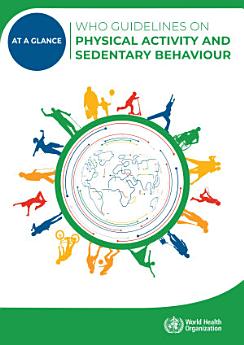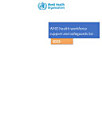WHO guidelines on physical activity and sedentary behaviour: at a glance
World Health Organization
Nov 2020 · World Health Organization
Ebook
24
Pages
family_home
Eligible
info
reportRatings and reviews aren’t verified Learn More
About this ebook
The WHO Guidelines on Physical Activity and Sedentary Behaviour provide comprehensive recommendations for promoting physical activity across various age groups and populations, including children, adults, older adults, pregnant women, and individuals with chronic conditions or disabilities. These guidelines emphasize the importance of regular physical activity for preventing and managing major health issues such as heart disease, diabetes, and cancer, as well as improving mental health and overall well-being. The guidelines advocate for a minimum of 150-300 minutes of moderate aerobic activity per week for adults and daily activity for children and adolescents. They also highlight the risks associated with excessive sedentary behavior and offer strategies for incorporating muscle-strengthening exercises to enhance balance and prevent falls in older adults. The guidelines aim to support national health policies and contribute to achieving global health objectives, particularly the Sustainable Development Goals.
Rate this ebook
Tell us what you think.
Reading information
Smartphones and tablets
Install the Google Play Books app for Android and iPad/iPhone. It syncs automatically with your account and allows you to read online or offline wherever you are.
Laptops and computers
You can listen to audiobooks purchased on Google Play using your computer's web browser.
eReaders and other devices
To read on e-ink devices like Kobo eReaders, you'll need to download a file and transfer it to your device. Follow the detailed Help Center instructions to transfer the files to supported eReaders.








